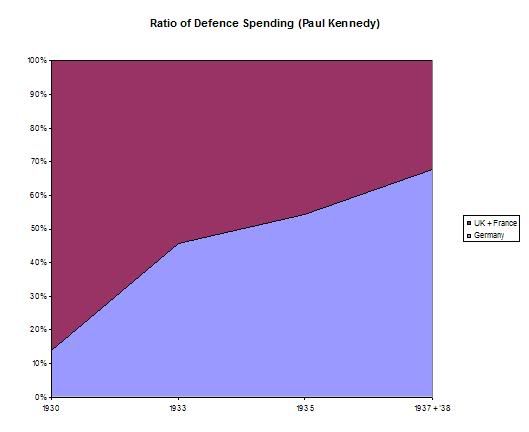| lombas |
16 december 2008 16:24 |
Citaat:
Oorspronkelijk geplaatst door Jozef Ostyn
(Bericht 3862821)
En welk nieuw onderzoek zou dit zijn? Ik geloof hier helemaal niets van.
Het was precies de bedoeling van Stalin dat Hitler oorlog zou voeren tegen de Westerse mogendheden, zodat de Sowjet-Unie zich kon voorbereiden op een latere oorlog. Alle verhalen in de voorbije jaren over plannen van Stalin om Duitsland aan te vallen zijn naar het rijk der fabelen verwezen.
|
Stalin’s plan to stop Hitler foiled when British talks broke down
Newly declassified documents have revealed that Stalin was ready to send over a million Soviet troops to the German border in order to pre-empt potential Nazi aggression. It’s claimed that if agreement had been reached between the USSR, Britain and France, the strategy could have prevented the outbreak of the Second World War.
The documents - mostly notes of meetings between the three sides and drafts of the agreement - reveal that Stalin was ready to dispatch the troops if Poland would allow them to cross its border.
Up to 120 infantry divisions (each with some 19,000 troops), 16 cavalry divisions, 5,000 heavy artillery pieces, 9,500 tanks and up to 5,500 fighter aircraft and bombers would have been placed on the German border.
Gen Sotskov, an ex-Soviet intelligence serviceman, told the Daily Telegraph: "Had the British, French and their European ally Poland, taken this offer seriously then together we could have put some 300 or more divisions into the field on two fronts against Germany - double the number Hitler had at the time. This was a chance to save the world or at least stop the wolf in its tracks."
The events took place on August 15, 1939. The British and French representatives were set to talk, but not to make any decisions or strike any deals. Their unwillingness to commit made Stalin turn towards Germany and sign the infamous Molotov-Ribbentrop Pact barely a week later.
Historian Vladimir Simindey told RT that this shift of sides initiated by the USSR was simple Real Politik. The diplomatic climate in Europe was extremely volatile and, being unprepared for full-scale military action, the USSR had to do everything possible to prevent conflict.
He points out that the new declassified information is just the latest piece of a bigger picture that historians have been observing for many years. The potential for an anti-Nazi alliance between Britain, France and the USSR has long been known, but the newly declassified documents reveal how serious Stalin was about the potential agreement. And, according Simindey, efforts to strike such a deal were made more than once.
"The Soviet Union repeatedly made attempts to create a system of regional and pan-European security from 1934,” he said. “It was then that efforts were made to create a stronger alliance between France and the USSR as well as set up a wider Western Pact which would include other states from Western Europe, not only the USSR, France and Great Britain."
But the attempts were met with cautious rejection. According to the expert, Moscow was ideologically separated from the negotiations because it did not support the policy of appeasement. Nevertheless, it did make efforts to participate in them, by making, among other things, the proposals that are mooted in the newly-declassified documents.
"However, the main problem was within the fact that both Britain and France made huge efforts to create a ‘sanitary corridor’ around the Soviet Union," Simindey added.
He believes that the key issue was that the Western European powers were not interested in cooperating with the USSR. They were, on the other hand, interested in a clash between Stalin and Hitler as, according to their reasoning, this would neutralise the threat arising from both. This was a common theme discussed in political salons in London and Paris alike.
Simindey thinks Russia's swift alliance with Germany was a direct response to the Munich agreement. It was a reaction to the fact they were left with no potential allies and were desperate to preserve the brittle peace in the region. This pact would last for two years, until Hitler's Blitzkrieg attack on Russia in June 1941, by which time most of Europe was already under Nazi occupation.
Link |


